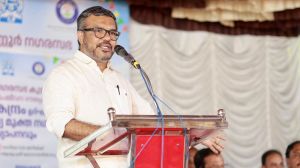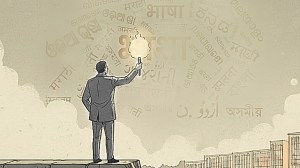
Following a Cabinet meeting Sunday, Sarma said that the report prepared by the unofficial T U Mehta Commission would be placed in the Assembly, along with the Tribhuvan Prasad Tewary panel report on the Nellie killings. The Tewary panel had not taken into consideration the views of those involved in the Assam Agitation during its probe.
“The AASU (All Assam Students’ Union that led the Assam Agitation) had told us that they have no objection to the Tewary Commission report being tabled. But at that time, the agitationists – AASU and the AAGSP (All Assam Gana Sangram Parishad) – had constituted a Mehta commission… Since we will bring the Tewary commission report before the Assembly, the AASU’s appeal was that the Mehta commission be brought before the Assembly too,” Sarma said.
Noting that it was the first time a private commission’s report would be placed before the Assembly, the CM said they would break from tradition “so that, in Assam’s history, in that chapter, people are able to get all kinds of views”.
The Tewary panel, or the ‘Commission of Enquiry on Assam Disturbances’, had submitted its report to the state government in May 1984, but it never saw the light of day. The commission was appointed to look into the circumstances leading to the violence in Assam between January and April 1983, specifically Nellie, where thousands of people, mostly Bengali-speaking Muslims, were killed.
While the official death toll in the Nellie killings was 1,800, the unofficial number is almost double, at 3,000. Nobody was ever arrested for the massacre.
Story continues below this ad
The 1983 violence in Assam had taken place in the midst of Assembly elections, held under President’s Rule due to the Assam Agitation. The movement began in 1979, with its primary demand being the detection and deportation of illegal immigrants from Bangladesh, and hit its peak in the early 1980s.
The AASU and AAGSP, the main leaders of the agitation, had announced a boycott of the elections.
In July 1983, the Congress government led by Hiteshwar Saikia, which came to power after the elections, constituted the Tewary commission.
AASU advisor Samujjal Bhattacharya said the Tewary commission “did not take the opinions of those who were part of the agitation”, including the AASU, prompting the ‘Assam Freedom Fighters’ Association’ to constitute a non-governmental commission in January 1984 to do so.
Story continues below this ad
“When we had a meeting with the CM, we told him we don’t oppose the Tewary commission report being circulated, and that people have the right to know its contents. But, for the sake of fairness, the (Mehta) report should also be circulated along with it,” Bhattacharya told The Indian Express.
The Mehta commission had included, apart from retired Himachal Pradesh judge T U Mehta, retired IAS officer Ganesh Chandra Phukan and Cotton College professor Raihan Shah.
The Tewary report states that the decision to hold elections amidst the disturbances alone “cannot be blamed for the outbreak of the violence of 1983”. “The evidence produced before the commission clearly brings out that the issues of foreigners, language, etc have been agitating the minds of the people for the last several decades, exploding into violence on several previous occasions,” it states.
It also holds the AASU and AAGSP responsible for the agitation, and its consequences. “There is overwhelming evidence that, with a view to preventing the holding of elections, arson, riots, destruction of public properties like buildings, road and bridges, sabotage of railway tracks, intimidation; picketing, ‘bandhs’ etc. were organised in a pre-planned and extensive scale. The whole situation got out of their control and the violence resulted in enormous loss of life and property.”
Story continues below this ad
The AASU’s Bhattacharya defended their protests, saying: “The 1983 Assembly elections were imposed on the people of Assam, and the situation was the result of this action against the will of the people… Only an independent commission could emphasise that.”
Sarma has brushed aside questions regarding the timing of tabling these reports, months ahead of the Assam elections. Observers have noted that with the Congress in power at the Centre in 1983, and the state under President’s Rule followed by the Congress, the findings could boomerang on the party that is hoping to secure the Muslim community’s vote in the Assembly elections.
Terming the reports merely “an academic exercise”, Sarma said Sunday. “The Congress is thinking that there are some provocative things there, that there will be some political advantage for the BJP. There is not a word there that will be of political advantage for the BJP. Except that a big chapter in Assam’s history writing will be missing if the Tewary commission report is not brought before the public. So this is an academic exercise… This was a commission constituted by their government, it was constituted under Prime Minister Indira Gandhi… After reading this report, the new generation will be able to understand many things. Why the Assam Agitation happened, and how at that time itself the Tewary commission had recommended constitutional protections (for the state),” he said.
Earlier, Sarma has stated that the “highlight” of the Tewary commission report is its documentation of “demographic change”, and the tensions surrounding it during that period.









